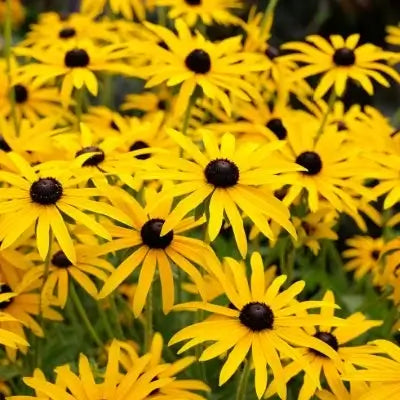Planting winter-friendly plants in your garden
When winter creeps over our gardens with its freezing temps and blankets of snow, it doesn’t mean we can’t keep some greenery to spruce up the place! Browse our favorite winter-friendly plants below (some are ideal for Tennessee gardens) and see what works in your neck of the woods!

Christmas Rose/Lenten Rose If you love pretty winter blossoms of pink, red, purple, white, green, and sometimes even black, then glance at these plants. If you’re shopping at the right time, you’ll be able to choose yours while they’re in bloom to be sure to get your favorite color. Known as the Helleborus, this plant’s blossoms will start peeking in late winter, so be sure to plant them where you can enjoy them the most -- a window box outside your bedroom or kitchen window or potted plants which can quickly move to wherever it suits you could be ideal.
Japanese Yew
Native to Japan, China, and Korea, this vibrant evergreen shrub grows beautifully in North America. These make a lovely hedge in a suitable space, with trees that can grow to forty feet tall and shrubs up to ten feet high. Attractive to colorful cardinals and musically-gifted thrushes, these plants are drought resistant and known for living through even the harshest winters. Do be cautious when necessary with these: the leaves, seeds, and bark of the yew are recognized as poisonous.

Ligustrum Privet Plants
These hardy varieties of privet plants are also attractive to songbirds, primarily due to the ample nesting space they provide and the berries they produce all winter long. They’re ideally suited for the winter in USDA Zones 8-10, and with their dark glossy leaves and rich purple berries, they create one of the prettiest shrubs you’ll ever have in your yard. Privets tolerate sun, partial shade, drought, a variety of soil types and don’t seem to be a favorite of deer. (Lucky you!)
Angelina Sedum
This lovely, low-growing succulent plant blooms a radiant yellow, bringing a little pop to your winter landscape just when you need it! They can grow up to 6 inches tall in Zones 5-9 and are often found growing naturally among rocky ledges and other stony surfaces. It can give an excellent ground cover to your garden, spreading up to twenty-four inches across, and is easily potted and re-planted as gifts for friends.

Winter Gem Boxwood
With a deep, glossy green foliage that turns gold in the winter, the Winter Gem Boxwood is most often planted together in rows as hedges, or grown into rounded shrubs, sometimes as high as 5 feet tall. These are perfect if potted, so you can rearrange and gift them as you wish. Ideal in Zones 5-9, they turn back to green in warmer weather and are usually ignored by deer.
Camellia
With blooms that vary in color from white to pink to the deepest of burgundy and glossy, green, oval-shaped leaves, Camellias are a Southern winter treat for an otherwise colorless landscape. Seek out your favorites in the winter, as well, so that you see the exact color and shape of the flowers you select. The flowers on these can range from quite small to as large as six or seven inches across.
Blue Spruce
You’ve probably seen these in homes decorated as Christmas trees at some point, but little potted (or planted) blue spruce plants are winter-hardy and just as beloved for a snowy garden landscape as a fully grown tree. Happiest to grow in Zones 2-7, they’re best off if kept in full sunlight (as much as six hours of direct sunlight daily). They’ll grow beautifully and give you plenty of large pinecones as well.
Winter Jasmine
This lovely spreading shrub thrives in Zones 3-12 (that’s a lot!) and starts to bloom its uniquely-shaped yellow flowers in early February. Originally from China, Winter Jasmine made its way to Britain in the mid-1800s, and from there, it’s history. Use it as a ground cover to help prevent erosion while prettying up your panorama, or split it up into containers where it can beautifully spill over the sides.
*Although these plants are hardier than most when it comes to winter temps, be careful to monitor yours and ask the pros at Tennessee Wholesale Nursery if you should bring yours in for the coldest of winter nights. If you have dogs or cats about, check this site or see if anything falls within the poisonous range.




























































